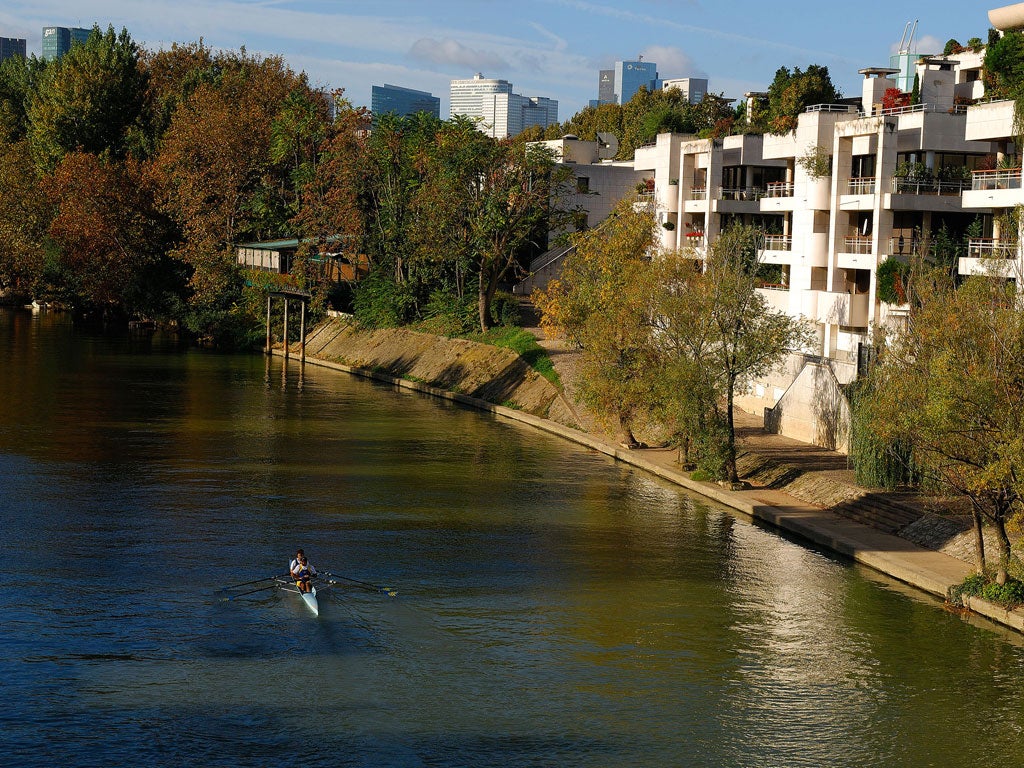Two little boys from a wealthy Paris suburb to meet once again

Your support helps us to tell the story
From reproductive rights to climate change to Big Tech, The Independent is on the ground when the story is developing. Whether it's investigating the financials of Elon Musk's pro-Trump PAC or producing our latest documentary, 'The A Word', which shines a light on the American women fighting for reproductive rights, we know how important it is to parse out the facts from the messaging.
At such a critical moment in US history, we need reporters on the ground. Your donation allows us to keep sending journalists to speak to both sides of the story.
The Independent is trusted by Americans across the entire political spectrum. And unlike many other quality news outlets, we choose not to lock Americans out of our reporting and analysis with paywalls. We believe quality journalism should be available to everyone, paid for by those who can afford it.
Your support makes all the difference.If you drive due west from Paris, heading for the skyscrapers of La Défense, you might not realise you have left the French capital. The Arc de Triomphe remains visible in your rear-view mirror. The broad avenue ahead of you is an extension of the Champs Elysées.
You then cross one of the loops of the river Seine and plunge into the tunnel beneath the La Défense business district. You have travelled the length – approximately one mile – of Neuilly-sur-Seine, one of the wealthiest communities in France.
This is the story of two boys who lived, less than a mile apart, in Neuilly-sur-Seine in the late 1960s. They insist they never met at that time, but by the time they were 17, the boys shared a passion: both wanted to be President of the Republic. The first lad, Nicolas, was one of three sons of a courageous woman who had been abandoned by her husband, an émigré Hungarian aristocrat. She brought up her boys in a small apartment beside a flower shop on that broad, noisy avenue leading from the Arc de Triomphe to La Défense. The other, François, was the younger son of a doctor with extreme right-wing views, who had moved with his family from Rouen in 1968.
Nicolas lived in Neuilly for most of his life and became mayor at the age of 28. Eventually, he moved from Neuilly town hall to the Elysée Palace. His surname was, of course, Sarkozy.
The second boy, François, left Neuilly at 19 to jump through the hoops of the elite colleges which have often led to the pinnacles of the French state. His second name was Hollande.
This Sunday, François and Nicolas, both 57, will take the first two places in the first round of the French presidential elections. If so, they will face off on 6 May – Nicolas as centre-right President and François as Socialist challenger and favourite to beat him.
Neuilly is not any old suburban town. It is a "power suburb"; a place not only of wealth but influence. The different relationships of Sarkozy and Hollande with their "home town" can tell you a lot about this year's race; and about the scarcely disguised contempt each has for the other. Mr Hollande passed his baccalaureate – the equivalent of A levels – in the chateau-like buildings of the state secondary school in Neuilly, the Lycée Pasteur.
Mr Sarkozy attended Catholic schools a couple of miles away within the Paris boundary.
Mr Hollande went on to Science Po, the celebrated Paris college of political science and the Ecole National d'Administration (ENA), the finishing school for the French political and administrative elite. He joined the staff of the Socialist president, François Mitterrand, in 1981 and created a rural base for himself in Corrèze, in the south west. He is a classic product of meritocratic, sheltered educational-political system which also produced Jacques Chirac (on the right) and Lionel Jospin and Ségolène Royal (his former partner) on the left.
This system is detested by Nicolas Sarkozy because he believes it breeds an inward-looking, cautious kind of politician – but also, perhaps, because it rejected him at the age of 19. Mr Sarkozy was turned down by Science Po because of his poor English. He trained instead as a lawyer. He leap-frogged into professional politics at the age of 28 by staging a coup to seize the centre-right nomination to be Mayor of Neuilly. He was never part of the traditional French ruling classes, of both left and right: effortlessly superior, understated, sustained by "old money" or the managerial certainties of the "grandes ecoles". His power base in Neuilly was a network of wealthy business figures from a "New France" of media and advertising and, mostly, "new" money. Nicolas Sarkozy, like them, became part of an un-French France: brash, self-promoting; vain rather than arrogant; in-your-face rather than bound by tradition.
The man who eventually succeeded Mr Sarkozy as Mayor of Neuilly, Jean-Christophe Fromantin, speaks eloquently of the imprint of Neuilly on President Sarkozy – both for the good and the bad.
"Sarkozy was very influenced by the leaders of the world of communication with whom he associated in Neuilly – the pollsters, the advertising executives, the senior journalists... I think he came to see politics as, above all, a question of communication, of transmitting a message, and of controlling a message.
"That world, that experience, created much of what was best about Sarkozy but was also responsible for the weaknesses which have been exposed in the last five years."
Join our commenting forum
Join thought-provoking conversations, follow other Independent readers and see their replies
Comments